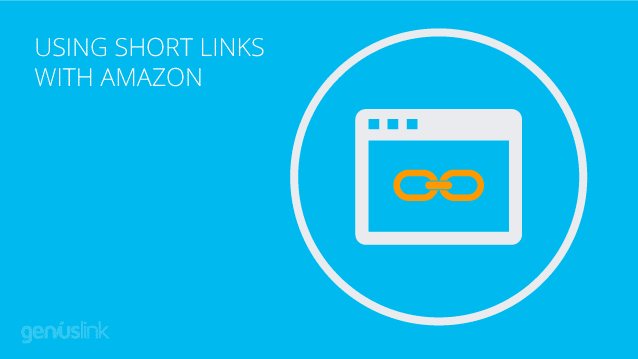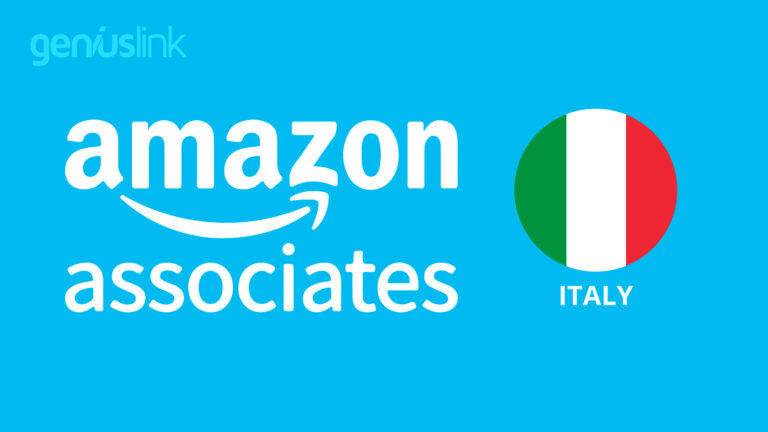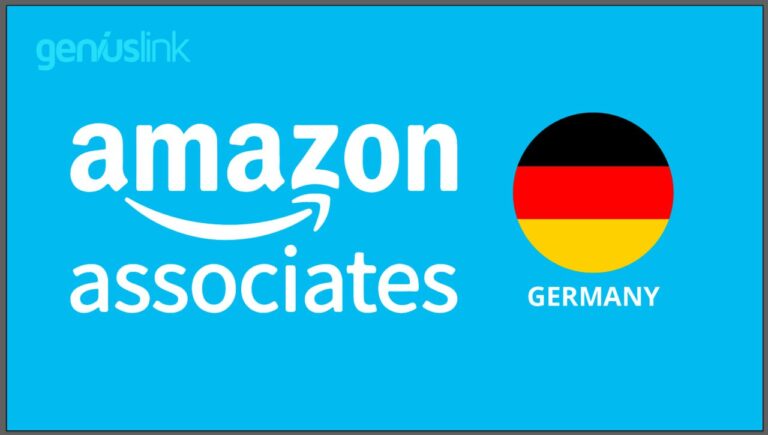Using Shorteners & Short Links With Amazon
-
Jesse is a Native Montanan and the co-founder and CEO of Geniuslink - or, as he likes to say, head cheerleader. Before Jesse co-founded Geniuslink, he was a whitewater rafting guide, worked at a sushi restaurant, a skate/snowboard shop, was a professional student, and then became the first Global Manager at Apple for the iTunes Affiliate Program.
- September 13, 2023

As an intelligent link management service with a deep history of supporting global affiliate programs, one of the most common questions we get is whether our links are okay to use with Amazon’s Associates Program – and for good reason!
While being an Amazon Associate can be lucrative, how to shorten Amazon links can also get very complicated when it comes to understanding the rules laid out in Amazon.com’s Participation Requirements. Failure to follow these rules can result in your account being terminated, and even worse, your commissions to be reversed! So it’s no wonder there’s so much concern surrounding whether it’s okay to use Geniuslink as an Amazon Associate.

The good news is you can absolutely use Geniuslink (or any link shortener for that matter) with your Amazon Affiliate links, you just need to ensure you’re following Amazon.com’s rules closely. However, how to shorten Amazon links can be tricky- interpreting Amazon’s “legalese” isn’t always straightforward. After years of working with affiliate publishers from around the world, we thought we’d share our interpretation of what these rules mean, and how we believe they apply to using shortened affiliate links on your site.
It’s important to note that these are general rules, and not just specifically aimed at people using Geniuslink. Using Pretty Links, Bitly, and even Google’s link shortener all fall under the category of using “Special Links” so you’ll want to make sure you follow these rules no matter which service you plan on using.
Disclaimer: Again, this is just our interpretation of Amazon.com’s Participation Requirements – it’s worked for ourselves and our clients, and we haven’t run into any issues when following these rules. While Amazon is often quiet when it comes to explicitly stating what you can and cannot do, to the best of our knowledge, following this guide should set you up to succeed. However, please reach out to Amazon Support directly if you’re still not sure, and be certain to read through your specific countries program requirements, as it’s ALWAYS better to double and triple check!
Being Honest with Amazon with your Short Amazon Links
“You will not cloak, hide, spoof, or otherwise obscure the URL of your Site containing Special Links (including by use of Redirecting Links) or the user agent of the application in which Content is displayed or used such that we cannot reasonably determine the site or application from which a customer clicks through such Special Link to the Amazon Site.” – Program Participation Requirements, Section 4. (v) “Responsibility for Your Site”
First, let’s try and break this section down: “You will not cloak, hide, spoof, or otherwise obscure the URL of your Site…such that we cannot reasonably determine the site or application from which a customer clicks through such Special Link to the Amazon Site.”
This section pertains to how Amazon keeps track of where their affiliate links are being shared online. They need to be able to tell exactly where end-users are clicking Amazon affiliate links from, and this may often rely on the “referrer” information being preserved when a user clicks through your (shortened) affiliate links.
To “obscure” the URL of your site would be to prevent the referral domain from being passed on to Amazon when someone clicks your links, which then prevents Amazon from ensuring that Associates are following their guidelines properly. Because of the way shortened links function, Amazon may also ask you to provide the specific sites on which the shortened links are posted and to make any social network profiles on which you post these links publicly accessible for verification purposes.
Fortunately, if you use Geniuslink, we’ll always ensure that any referrer information is passed on to Amazon, so you won’t ever be cloaking or hiding the referral domain when you share a Geni.us link!
This is something that was brought to our attention by Amazon early on when we first started working with their Associates Program. Further, every month we compile a report and send it to the Amazon Account Managers globally. This report includes a list of shared clients (those using Geniuslink and the Amazon Associates Program) and which programs they are using. This additional step gives the Amazon team further clarification and provides regular communication.
However, in general, it’s always best to check with the link management service you’re using to ensure that this information is passed on and that you’ll be compliant with Amazon’s TOS.
Being Honest with Your Audience
“You will not use a link shortening service in a manner that makes it unclear that you are linking to an Amazon Site.“ Program Participation Requirements, Section 4. (w) “Responsibility for Your Site”
This section of the Participation Requirements echoes the previous rule, but covers any manipulation of your links that could be deemed “cloaking”. Cloaking is the act of disguising a link, as well as referrer information, from bots, crawlers and/or humans by hiding the original affiliate link behind one that doesn’t look like an affiliate URL.
While the term “cloaking” may sound scary, it’s considered good SEO practice by many. There’s often some confusion online regarding whether you should or should not shorten your affiliate links and if simply shortening a link is considered “cloaking”.
We follow these simple guidelines to ensure a link is being used properly when working directly with clients: “As long as it’s clear that the shopper is going to Amazon either through visuals or some other indicator.” In this case, Amazon just wants you to be perfectly clear that the affiliate link you’re sharing, in whatever form, goes to Amazon.
Don’t try to hide this! Just be honest and help inform your audience that they can find the product you recommend in their local Amazon storefront. We’ve seen Associates following this rule a few different ways such as, including “Amazon” in the anchor text of the link (see example below), the call to action directly before or after the link, placing the text “(Amazon)”, or even a small Amazon icon.
This just means that you shouldn’t say something along the lines of “We love this product!” with the word “this” linked to Amazon with a short link; as this again makes it difficult for your audience to tell that they’ll be taken to Amazon, even if you didn’t mean to hide the link destination intentionally. This can typically be resolved by simply rephrasing your writing, so instead it might say “We love this product! – Buy on Amazon” with the “Buy on Amazon” linking to the corresponding item. This lets the reader know the link is taking them away from your page and to the Amazon storefront.
We’ve also seen that if the “status bar” (the little box that shows the URL of the link your mouse is hovering on that typically shows up in the bottom left of your browser window) shows a raw Amazon link that is also sufficient for meeting this guideline.
While the Amazon Participation Requirements are full of good information, the previously mentioned guidelines are two of the most important ones you’ll need to follow in order to use Geniuslink, or any other link management tools safely. Of course, this is only assuming that you’ve already made sure the rest of your website is compliant as well (don’t copy images directly from the site, don’t list prices statically, etc.). Again, we encourage you to read through the Participation Requirements yourself and ask the Associates Support Team if you have any questions before publishing any content.
Remember, when you do start sharing your links, ensure that you’re completely honest with your audience! When it comes to being a successful affiliate, honesty really is the best policy.
So long as you’re honest with your audience and follow Amazon’s guidelines responsibly, then using Geniuslink, as well as any other link shortener, with Amazon should be no problem. If you have any questions regarding this topic, or just aren’t sure if you’re following the Participation Requirements properly, please do not hesitate to contact us or the Associates Support Team.
Author
-
Jesse is a Native Montanan and the co-founder and CEO of Geniuslink - or, as he likes to say, head cheerleader. Before Jesse co-founded Geniuslink, he was a whitewater rafting guide, worked at a sushi restaurant, a skate/snowboard shop, was a professional student, and then became the first Global Manager at Apple for the iTunes Affiliate Program.
Author
-
Jesse is a Native Montanan and the co-founder and CEO of Geniuslink - or, as he likes to say, head cheerleader. Before Jesse co-founded Geniuslink, he was a whitewater rafting guide, worked at a sushi restaurant, a skate/snowboard shop, was a professional student, and then became the first Global Manager at Apple for the iTunes Affiliate Program.
Related posts

Can you Include Affiliate Links in Emails?

Amazon Associates Italy Guide: Account Setup, Amazon OneLink, Taxes, & More

Amazon Associates Germany Guide: Account Setup, Amazon OneLink, Taxes, & More

How to Create Affiliate Product Reviews (With the Help of ChatGPT)
More revenue from every link you share
Geniuslink makes localizing, tracking, and managing smart links dead simple, so you can earn more without added work.
